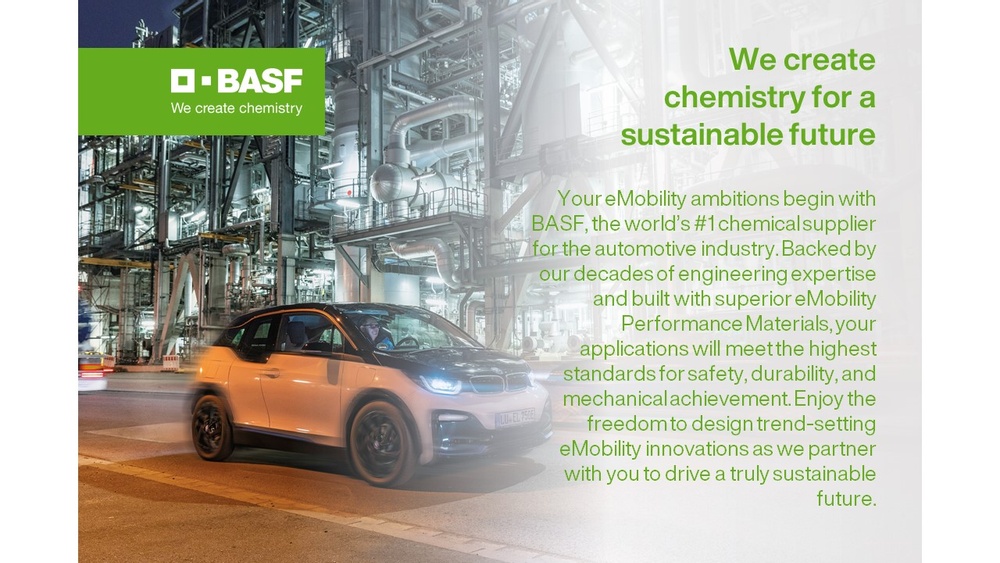22 June 2021

Swedish Energy Agency and German-Swedish Chamber of Commerce to take 10 Swedish companies to Germany
Ten companies have now been admitted to the Swedish-German Cleantech Platform program financed by Swedish Energy Agency (Energimyndigheten). Through the program, companies will receive help to establish themselves on the German market. The program is run in collaboration with the German-Swedish Chamber of Commerce.
Verena Adamheit, a project manager at the German-Swedish Chamber of Commerce commented that German companies are keen to meet innovative companies from abroad, especially since there is a lot of political pressure to achieve the ambitious German climate goals. For a list of the 10 companies see the press release.
Ovako's hydrogen investment supported by the Swedish Energy Agency
The steel company Ovako, in Hofors (north of Stockholm) is investing in hydrogen with the ambition of reducing CO2 emissions from steel production by 50%. The project is being supported by SEK 71 million from the Swedish Energy Agency as part of the Industrial Life (Klimatklivet) initiative, with the remaining 60% of funding from Ovako, Volvo Technology, Hitachi ABB Power Grids, H2GS and others. Ovako will invest in an electrolyser, ie a plant for generating hydrogen and oxygen, which will be used instead of LPG when heating steel. The electrolyser also creates other opportunities in the long run. The aim of the project is to investigate how the facility can be integrated with the electricity and energy system and the rest of society. An example could be to establish a hydrogen filling station for heavy traffic at the factory, and thus contribute to a regional hydrogen infrastructure. (Industrinyheter)
OX2 plans IPO
OX2 is planning a listing on First North Premier. OX2 develops and sells wind and solar power plants. Its strategy has been based on a combination of self-developed and acquired project rights. The company was founded in 2004 and had planned a listing in 2010, but this was withdrawn. During the company's first five to ten years, the market was driven by financial support and there was a lack of buyers of individual parks. Hence, the company's business model was to be an electricity producer for the most part.
Now the situation is different. "We have turned from owning wind power ourselves to selling finished plants to third parties and it is a sector that has increased significantly in recent years as more and more insurance money, infrastructure funds and even direct investing pension capital have been allocated to own power production directly", said CEO Paul Stormoen.
Last year, net sales increased by 6% to SEK 5.2 billion with an operating margin of 8%. (Dagens Industri)
Infranode secures SEK 12 billion for a new infrastructure fund
Stockholm-based Infranode is jubilant after securing SEK 12 billion for a new fund for infrastructure investments. A large number of Swedish and foreign players are said to have invested in the Infranode II fund, including insurer Folksam, the pension manager KPA, Finland's largest pension manager KEVA, Norway's largest pension manager Storebrand, and Ikea's IMAS Foundation. Founder, Christian Doglia said “We aimed for SEK 10 billion, but the goal was greatly exceeded. It is absolutely fantastic to get this trust from so many and heavy institutional investors ... We see that interest in sustainability is increasing sharply. At the same time, investors' desire to spread the risks from both increasingly high-value and volatile stock exchanges and low-yielding fixed-income securities with stable and long-term investments in infrastructure is growing.” (Dagens Industri)
Hydrogen / ammonia project in Berlevåg gaining momentum
Aker Clean Hydrogen and Varanger Kraft plan to build a green hydrogen and ammonia plant. The project has undergone an initial evaluation and a rapid expansion of the plant is being considered.
The planned plant in Berlevåg in far north Norway will use hydro and wind power, with the ammonia intended to replace traditional fossil fuels for ships, rigs and power plants. The parties stated in a stock exchange announcement that the project has passed the feasibility study and the concept phase. The project is based on a 100 MW hydrogen plant, but an expansion to 200 MW is being considered. (Europower)
Energy shortages set to affect production in western Sweden
Western Sweden is facing energy shortages as the region approaches full network capacity, which risks new investment and business opportunities. Tula Ekengren, a regional developer with responsibility for energy in Västragötaland, highlights that the lifeline of energy supply lines have long been underestimated and stresses that authorities expand capacities in parallel with the construction of major industrial projects. As it takes 10-12 year to expand capacities, Ekengren is calling on businesses to submit their energy needs proposals at an earlier date in their planning phases for authorities to consider possible avenues to feed tomorrow’s energy needs. Manufacturing sites usually rely on energy from other regions and some production facilities devour energy levels the equivalent of small towns. (Sveriges Radio)
What we’re reading
- Shipping boss warns EU carbon plans threaten to raise industry’s emissions (Financial Times, paywall)
About Nordic Green News
The Nordic countries are some of the most dynamic and successful economies in the world. They are also leaders in sustainability, from renewable energy, biofuels, carbon capture and storage and the hydrogen economy, circular economy business models and battery development, the Nordics are pioneers in policy design, technology development and consumer uptake. Mundus Nordic Green News is covering this transition for the international community. Every day we clip the stories of most relevance to international businesspeople and policy experts from the flow of news. We supplement these with our own opinion pieces and commentary, in English.

